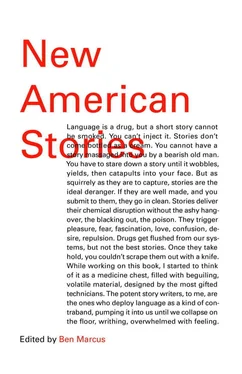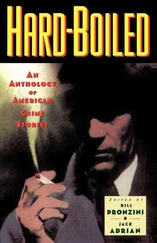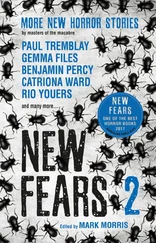Once, I lived here. Went to Columbia University, studying history first, then broadcast journalism. Worked for a couple of pointless years at the Post, and then for thirteen tough but prosperous years at Castle and Forbes on Fifty-Fourth, just off Madison Avenue. And then took my insomnia, my afternoon headaches, my doubts, and my antacid tablets to San Diego and lost them in the Pacific Ocean. New York and I didn’t quite fit. I knew it the whole time. Some of my Columbia classmates came from faraway places like Iowa and Nevada, as I had come a shorter way from New Hampshire, and after graduation they’d been absorbed into Manhattan and had lived there ever since. I didn’t last. I always say, “It was never my town.”
Today it was all mine. Today I was its proprietor. With my overcoat wide open and the wind in my hair, I walked around and for an hour or so presided over the bits of litter in the air — so much less than thirty years ago! — and the citizens bent against the weather, and the light inside the restaurants, and the people at small tables looking at one another’s faces and talking. The white flakes began to stick. By the time I entered Trump Tower, I’d had a long, hard, wet walk. I repaired myself in the restroom and found the right floor. At the ceremony, my table was near the front — round, clothed in burgundy, and surrounded by eight of us, the other seven much younger than I, a lively bunch, fun and full of wisecracks. And they seemed impressed to be sitting with me, and made sure I sat where I could see. All that was the good part.
Halfway through dessert, the nerve in my back began to act up, and by the time I heard my name and started toward the podium my right shoulder blade felt as if it were pressed against a hissing old New York steam-heat radiator. At the head of the vast room, I held the medallion in my hand — that’s what it was, rather than a trophy; an inscribed medallion three inches in diameter, good for a paperweight — and thanked a list of names I’d memorized, omitted any other remarks, and got back to my table just as another pain seized me, this one in the region of my bowels, and now I repented my curbside lunch, my delicious New York hot dogs, especially the second one, and, without sitting down or even making an excuse, I let this bout of indigestion carry me out of the room and down the halls to the men’s lavatory, where I hardly had time to fumble the medallion into my lapel pocket and get my jacket on the hook.
I’d sat down with my intestines in flames, first my body bearing this insult, and then my soul insulted, too, when someone came in and chose the stall next to mine. Our public toilets are just that — too public; the walls don’t reach the floor. This other man and I could see each other’s feet. Or, at any rate, our black shoes, and the cuffs of our dark trousers.
After a minute, his hand laid on the floor between us, there at the border between his space and mine, a square of toilet paper with an obscene proposition written on it, in words large and plain enough that I could read them whether I wanted to or not. In pain, I laughed. Not out loud.
I heard a small sigh from the next stall.
By hunching down into my own embrace and staring hard at my feet, I tried to make myself go away. I didn’t acknowledge his overture, and he didn’t leave. He must have taken it that I had him under consideration. As long as I stayed, he had reason to hope. And I couldn’t leave yet. My bowels churned and smoldered. Renegade signals from my spinal nerve hammered my shoulder and the full length of my right arm, down to the marrow.
The awards ceremony seemed to have ended. The men’s room came to life — the door whooshing open, the run of voices coming in. Throats and faucets and footfalls. The spin of the paper towel dispenser.
Somewhere in here, a hand descended to the note on the floor, fingers touched it, raised it away. Soon after that the man, the toilet Casanova, was no longer beside me.
I stayed as I was, for how long I couldn’t say. There were echoes. Silence. The urinals flushing themselves.
I raised myself upright, pulled my clothing together, made my way to the sinks.
One other man remained in the place. He stood at the sink beside mine as our faucets ran. I washed my hands. He washed his hands.
He was tall, with a distinctive head — wispy colorless hair like a baby’s, and a skeletal face with thick red lips. I’d have known him anywhere.
“Carl Zane!”
He smiled in a small way. “Wrong. I’m Marshall Zane. I’m Carl’s son.”
“Sure, of course — he would have aged, too!” This encounter had me going in circles. I’d finished washing my hands, and now I started washing them again. I forgot to introduce myself. “You look just like your dad,” I said. “Only twenty-five years ago. Are you here for the awards night?”
He nodded. “I’m with the Sextant Group.”
“You followed in his footsteps.”
“I did. I even worked for Castle and Forbes for a couple of years.”
“How do you like that? And how’s Carl doing? Is he here tonight?”
“He passed away three years ago. Went to sleep one night and never woke up.”
“Oh. Oh, no.” I had a moment — I have them sometimes — when the surroundings seemed bereft of any facts, and not even the smallest physical gesture felt possible. After the moment had passed, I said, “I’m sorry to hear that. He was a nice guy.”
“At least it was painless,” the son of Carl Zane said. “And, as far as anyone knows, he went to bed happy that night.” We were talking to each other’s reflection in the broad mirror. I made sure I didn’t look elsewhere — at his trousers, his shoes. But, for this occasion, we men, every one of us, had dressed in dark trousers and black shoes. “Well…enjoy your evening,” the young man said.
I thanked him and said good night, and, as he tossed a wadded paper towel at the receptacle and disappeared out the door, I’m afraid I added, “Tell your father I said hello.”
As I trudged up Fifth Avenue after this miserable interlude, I carried my shoulder like a bushel-bag of burning kindling and could hardly stay upright the three blocks to my hotel. It was really snowing now, and it was Saturday night, the sidewalk was crowded, people came at me, forcing themselves against the weather, their shoulders hunched, their coats pinched shut, flakes battering their faces, and though the faces were dark I felt I saw into their eyes.
I came awake in the unfamiliar room I didn’t know how much later, and, if this makes sense, it wasn’t the pain in my shoulder that woke me but its departure. The episode had passed. I lay bathed in relief.
Beyond my window, a thick layer of snow covered the ledge. I became aware of a hush of anticipation, a tremendous surrounding absence. I got out of bed, dressed in my clothes, and went out to look at the city.
It was, I think, around one a.m. Snow six inches deep had fallen. Park Avenue looked smooth and soft — not one vehicle had disturbed its surface. The city was almost completely stopped, its very few sounds muffled yet perfectly distinct from one another: a rumbling snowplow somewhere, a car’s horn, a man on another street shouting several faint syllables. I tried counting up the years since I’d seen snow. Eleven or twelve — Denver, and it had been exactly the same, exactly like this. One lone taxi glided up Park Avenue through the virgin white, and I hailed it and asked the driver to find any restaurant open for business. I looked out the back window at the brilliant silences falling from the street lamps, and at our fresh black tracks disappearing into the infinite — the only proof of Park Avenue; I’m not sure how the cabbie kept to the road. He took me to a small diner off Union Square, where I had a wonderful breakfast among a handful of miscellaneous wanderers like myself, New Yorkers with their large, historic faces, every one of whom, delivered here without an explanation, seemed invaluable. I paid and left and set out walking back toward midtown. I’d bought a pair of weatherproof dress shoes just before leaving San Diego, and I was glad. I looked for places where I was the first to walk and kicked at the powdery snow. A piano playing a Latin tune drew me through a doorway into an atmosphere of sadness: a dim tavern, a stale smell, the piano’s weary melody, and a single customer, an ample, attractive woman with abundant blond hair. She wore an evening gown. A light shawl covered her shoulders. She seemed poised and self-possessed, though it was possible, also, that she was weeping.
Читать дальше










![Женя Джентбаев - neo futura [stories]](/books/692472/zhenya-dzhentbaev-neo-futura-stories-thumb.webp)

